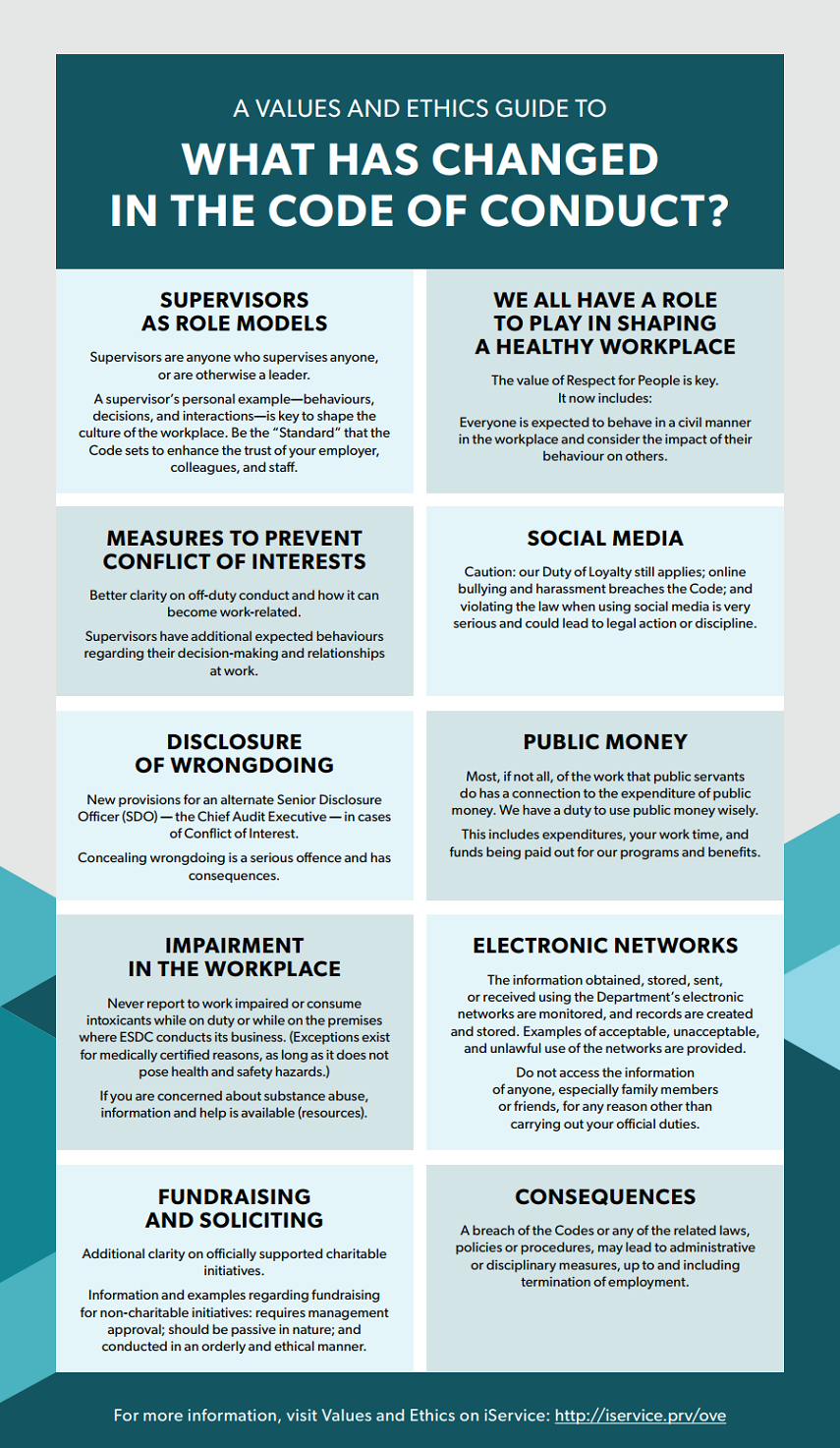What Has Changed in The Code of Conduct
Infographic Long Description
A Values and Ethics Guide to What Has Changed in The Code of Conduct?
Supervisors as Role Models
Supervisors are anyone who supervises anyone, or are otherwise a leader.
A supervisor's personal example—behaviours, decisions, and interactions—is key to shape the culture of the workplace. Be the "Standard" that the Code sets to enhance the trust of your employer, colleagues, and staff.
We All Have a Role to Play in Shaping a Healthy Workplace
The value of Respect for People is key.
It now includes:
Everyone is expected to behave in a civil manner in the workplace and consider the impact of their behaviour on others.
Measures to Prevent Conflict of Interests
Better clarity on off-duty conduct and how it can become work-related.
Supervisors have additional expected behaviours regarding their decision-making and relationships at work.
Social Media
Caution: our Duty of Loyalty still applies; online bullying and harassment breaches the Code; and violating the law when using social media is very serious and could lead to legal action or discipline.
Disclosure of Wrongdoing
New provisions for an alternate Senior Disclosure Officer (SDO) — the Chief Audit Executive — in cases of Conflict of Interest.
Concealing wrongdoing is a serious offence and has consequences.
Public Money
Most, if not all, of the work that public servants do has a connection to the expenditure of public money. We have a duty to use public money wisely.
This includes expenditures, your work time, and funds being paid out for our programs and benefits.
Impairment in The Workplace
Never report to work impaired or consume intoxicants while on duty or while on the premises where ESDC conducts its business. (Exceptions exist for medically certified reasons, as long as it does not pose health and safety hazards.)
If you are concerned about substance abuse, information and help is available (resources).
Electronic Networks
The information obtained, stored, sent, or received using the Department's electronic networks are monitored, and records are created and stored. Examples of acceptable, unacceptable, and unlawful use of the networks are provided.
Do not access the information of anyone, especially family members or friends, for any reason other than carrying out your official duties.
Fundraising and Soliciting
Additional clarity on officially supported charitable initiatives.
Information and examples regarding fundraising for non-charitable initiatives: requires management approval; should be passive in nature; and conducted in an orderly and ethical manner.
Consequences
A breach of the Codes or any of the related laws, policies or procedures, may lead to administrative or disciplinary measures, up to and including termination of employment.
For more information, visit: Values and Ethics
